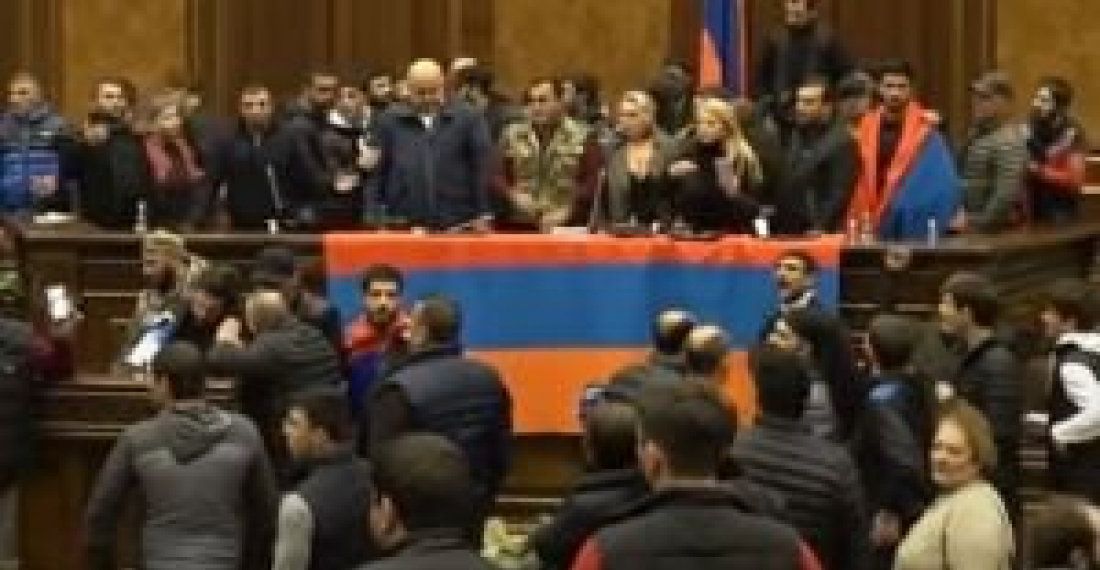There were scenes of chaos in the Armenian capital Yerevan early on Tuesday morning (10 November) after demonstrators took to the streets to protest against an agreement that had just been signed by prime minister Nikol Pashinyan to bring an end to the war with Azerbaijan that had been raging for the last six weeks.
Angry protestors attacked the government building, as well as the building of the National Assembly where the Speaker of Parliament, Ararat Mirzoyan, was badly beaten up.
During the night there were reports that Armenian prime minister Nikol Pashinyan had fled the country, but these rumours were quickly denied by Pashinyan himself.
In a televised statement this morning the president of the self-declared Nagorno-Karabakh Republic defended the decision to end the war, on which he said he had been consulted and to which he had agreed, and said that not to would have resulted in many casualties.
This morning also, the General Staff of the Armenian Armed Forces called on all "to refrain from actions that can undermine the foundations of the statehood, learning from all possible mistakes, to build an incomparably strong and efficient army, which our heroic people deserve".
The nine point agreement signed by the leaders of Russia, Armenia and Azerbaijan last night provides for an immediate end of all hostilities. It provides for the sides to stop at their current positions. It then also provides for Armenia to return to Azerbaijan a number of territories over the next four weeks. It also provides for the deployment of a Russian peacekeeping force of around two thousand troops. It is understood that the deployment of the Russian forces has already began. Azerbaijani sources say that Turkey is also going to be involved in the peacekeeping operation but this is not explicitly stated in the agreement.
source: commonspace.eu
photo: protestors occupy the Armenian parliament after a night of chaos following the signing of an agreement ending the Karabakh war.






